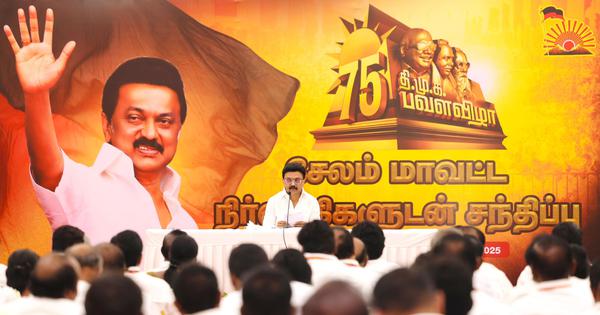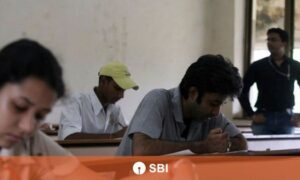
For more than five decades, Tamil Nadu has been ruled by the two Dravidian parties, resisting the tide of coalition politics in favour of single-party dominance in the state.
“Self-rule in the state, coalition at the Centre,” as CN Annadurai, Dravidian ideologue and founder of the Dravida Munnetra Kazhagam often said in his Rajya Sabha speeches. This political instinct has insulated Tamil Nadu governments from the messy negotiations and power-sharing dynamics that coalitions demand.
Alliances formed by the Dravida Munnetra Kazhagam or the All India Dravida Munnetra Kazhagam with regional or national parties were limited to electoral arrangements that never translated into power-sharing within the cabinet. Tamil Nadu’s cabinets remained exclusive to a single party.
At best, the allies were allowed increased seat allocations and administrative posts at lower levels. Even narrow victories by the Dravidian parties were followed by unilateral governance.
After winning the 2016 state election with a slim margin of 136 seats – just 18 seats above the majority mark of 118 – the All India Dravida Munnetra Kazhagam did not include its allies in cabinet positions.
But with state elections due in 2026, that formula may be nearing its expiry. Tamil Nadu’s Dravidian parties are no longer on firm political footing.
The Bharatiya Janata Party has emerged as a vocal and ambitious player, while regional allies such as the Pattali Makkal Katchi and Viduthalai Chiruthaigal Katchi have struck a more aggressive stance.
The BJP has confidently projected a victory for its National Democratic Alliance in 2026 and forming a coalition government, as Union Home Minister Amit Shah asserted in June.
Like Shah, Thol Thirumavalavan of the Viduthalai Chiruthaigal Katchi has repeatedly sought cabinet posts and real decision-making power, arguing that true empowerment comes from active participation in governance.
Tamil actor Vijay’s political entry in 2024 will also be a factor. In one of his speeches in 2024, Vijay appealed to political parties in the state to join him, saying that he favoured alliances that truly co-govern.
But anxieties overshadow coalition politics in Tamil Nadu.
Since 1998, the All India Dravida Munnetra Kazhagam has allied with the BJP at least six times: in the 1998, 2004, 2014 and 2019 Lok Sabha elections, the 2021 Tamil Nadu Assembly elections and now the upcoming 2026 Assembly polls.
However, they have parted ways several times, most recently before the 2024 Lok Sabha elections due to differences with BJP Tamil Nadu leader and former state party chief K Annamalai. In 2023, Annamalai caused a furore after he alluded to All India Dravida Munnetra Kazhagam icon and former chief minister J Jayalalithaa being convicted in a corruption case.
The BJP’s Hindutva ideology also directly contradicts the Dravidian tenets of secularism, social justice and linguistic pride, threatening political autonomy and cultural identity.
If a coalition government were to become necessary, the Dravidian parties will have to be open to including intra-regional parties that share their concerns on caste equity, education and economic justice.
Moreover, the old argument that coalitions breed instability does not stand up to scrutiny. Neighbouring Kerala, Tamil Nadu’s competitor in social development, has functioned under coalition governments since 1969 with both stability and policy innovation.
Over the decades, Tamil Nadu’s electorate has also changed. Urbanisation, the rise of caste assertion, growing demands for political accountability and transparency in governance, and the changing perceptions of Dravidian and Tamil identity among younger generations have created a citizenry that may no longer find the monochrome cabinets of the past acceptable.
Voters are also less deferential, more demanding and diverse.
The 2006 model of an M Karunanidhi-led DMK government operating on a threadbare mandate and excluding partners is unlikely to be tolerated in this political climate. Back then, the Dravidian party had won just 96 seats and was propped up by allies in 22 seats to reach the majority mark of 118.
The Congress, Pattali Makkal Katchi and the Left parties extended support from outside, making it the first minority government in Tamil Nadu since 1952.
Coalitions can be good for democracy
The road to effective coalition governance will require more than arithmetic: it demands political maturity, honest negotiation and, above all, a willingness to share power.
Coalitions built on shared principles and transparent agreements can deepen democracy, broaden representation and encourage participatory governance.
Coalition politics has come to be maligned as a weakness. But democracy is about debate, negotiation, compromise and shared vision. A well-functioning coalition reflects the complexity of society and the legitimacy of multiple voices.
Tamil Nadu’s political leadership, once the vanguard in challenging orthodoxy and a domineering Centre, could again rewrite the rules by showing how pluralism can work as an everyday practice of governance. Coalition politics must be seen as an avenue to harness diverse perspectives and crafting more inclusive, responsive policies.
For a state with complicated caste dynamics and evolving social aspirations, coalitions may deliver more equitable outcomes than dominant-party rule has. Coalitions can force parties to articulate clearer, more differentiated visions and to negotiate ideas instead of just seats.
Policy-making could become more rigorous, reflecting a broader spectrum of societal needs and expectations. If accepted with openness and foresight, coalition politics could help Tamil Nadu confront the challenges of the 21st century with greater resilience.
P John J Kennedy is an educator and political analyst based in Bengaluru.
This article first appeared on Scroll.in
📰 Crime Today News is proudly sponsored by DRYFRUIT & CO – A Brand by eFabby Global LLC
Design & Developed by Yes Mom Hosting






